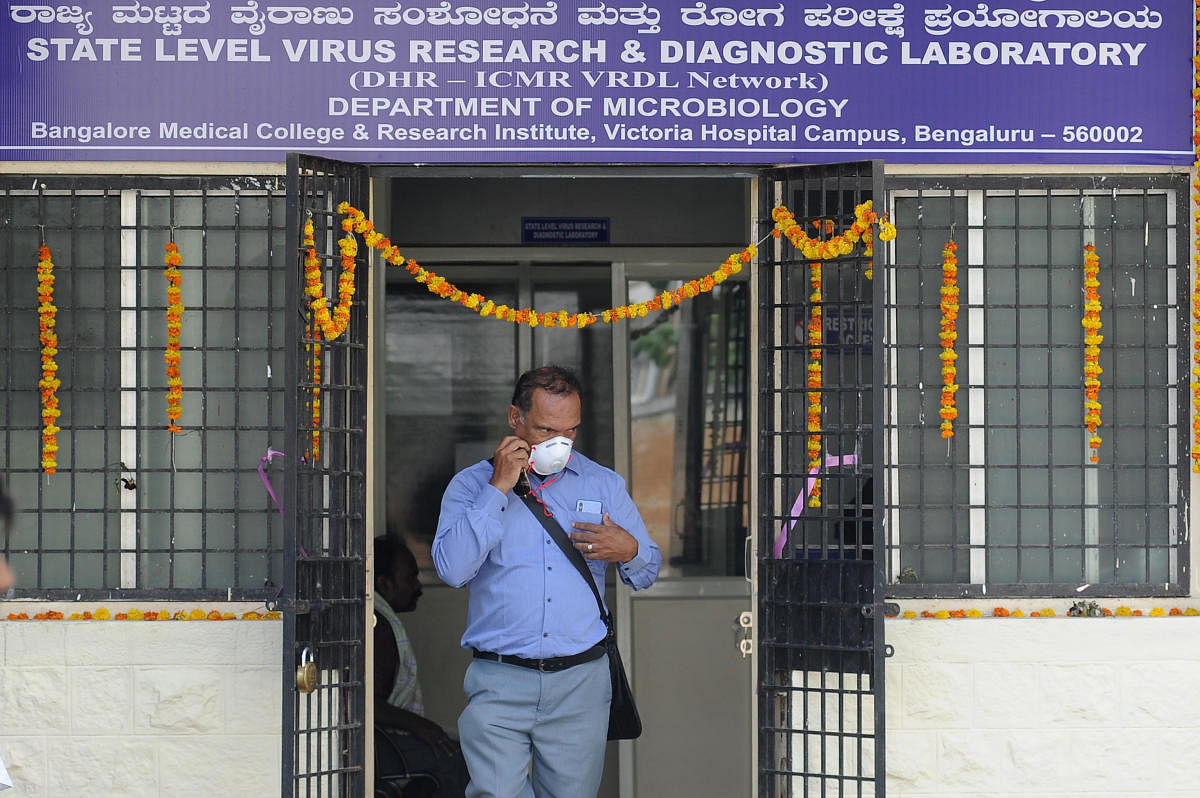
The surge in COVID-19 samples is beginning to put a strain on the city’s laboratories; one of them has a commitment to test for at least 29 other conditions.
Of course, the government has capped each of the labs to test 42 samples a day, but they end up testing far more as the COVID-19 emergency cases clash with the other regular tests.
In addition to COVID-19, the National Institute of Virology (NIV) is testing samples for acute flaccid paralysis among other national surveillance projects, while Bangalore Medical College and Research Institute’s Virus Research and Diagnostic Laboratory (BMCRI VRDL) is testing 29 conditions, besides Hepatitis-B viral load, leptospirosis and scrub typhus.
“We’ve been testing 20 to 25 samples of COVID-19 a day since Feb. 2,” Ashok Munivenkatappa, scientist, Indian Council of Medical Research (ICMR), who heads NIV Bengaluru, told DH. He said that the 35-member team at the institute is able to cope for now.
The institutes also regularly reach out to ICMR for Polymerase Chain Reaction (PCR) testing kits. Dr Sathyanarayan M S from BMCRI VRDL said that his lab raises an indent with ICMR when the number of testing kits reduces to 10%.
Dr Shantala G N, an assistant professor of microbiology at BMCRI VRDL, admitted that the lab was currently testing nearly 70-80 COVID-19 samples a week.
“We test about 15-20 COVID-19 samples a day, besides H1N1, dengue, chikungunya, Japanese encephalitis, measles, mumps, rubella and rotavirus,” she said.
Since Feb. 1, the lab has tested 155 COVID-19 samples, while receiving 167 samples. “Twenty samples can be simultaneously loaded to the PCR machine,” said Munivenkatappa. While the results take six hours, a confirmatory test is done if the result is positive.
Sathyanarayan ruled out cross-contamination since samples are kept in dedicated cabinets and are sealed when loaded into the PCR plate.
